Since the 1980s several women have been arrested and then beaten, suffering injuries or even dying after their arrests, or in the detention centres of the Islamic Revolutionary Committees, for running afoul of Iran’s hijab laws or similar rules. But none of these cases attracted the levels of attention seen this past week for the murder of Mahsa Amini.
In response to this latest “state-sponsored murder”, a group of protestors dared to gather outside Kasra Hospital in Tehran, where Amini died, to chant “Morality Patrol! Morality Patrol!” in anger at the authorities who took Amini’s life.
The following is a chronology of assaults and murder of women by police agents roaming the streets as this “Morality Patrol” or by the paramilitary Basij organization.
2007: Zahra Bani-Yaghoub, The First Highly-Publicized Victim of Morality Patrols
Zahra Bani-Yaghoub was a 27-year-old medical university graduate from Tehran who had volunteered to work in the western city of Hamedan. On October 12, 2007, while in a park with her fiancé, she was arrested by Basiji agents of the Headquarters for the Promotion of Virtue and Prevention of Vice (Setad-PV). Two days later, officials at the detention center announced that she had committed suicide by hanging herself.
Her family, however, said they had no reason to believe their daughter would take her own life. Her father, who reportedly worked at an Islamic Revolutionary Guards Corps (IRGC) facility, accused the police of assaulting and murdering his daughter. The family also said her brother had spoken with her over the phone just 15 minutes before the time the police claimed she killed herself. Bani-Yaghoub's brother said there was no indication that she was minutes away from taking her life.
The family said Bani-Yaghoub's body was bruised and that there was blood in her nose and in her ears. And the family’s lawyer, the Nobel Laureate Shirin Ebadi, said the bar that Zahra had supposedly used to hang herself was out of her reach.
Her father, Abolghasem Bani-Yaghoub, sued the director and the agents of Setad-PV, accusing Colonel Mohammad Hossein Gharebaghi, Reza R., Gholamreza S., Amir M., Sayyad S. and Masoumeh K. of murdering his daughter. However, after 15 years, not only have the culprits not been punished, even their full names remain unknown.
In 2012, Abolghasem Bani-Yaghoub reported that Branch 46 of the Appeals Court of Tehran had acquitted the accused of his daughter’s murder and only two of them, Mohammad Hossein Gharebaghi, head of Setad-PV, and Hossein Mostaghimi, a member of the same organization, had been sentenced to prison but for “fabricating evidence” and “illegal arrest”, not for murder.
2008: Morality Patrol Bloodies a Woman in Public
Some women have succeeded in escaping morality patrols after their arrest.
In 2008, a group of reporters working for the reformist newspaper Etemad Melli witnessed a woman receive a brutal beating, with her face bloodied, after she had refused to get into the morality patrol’s van. The woman, however, succeeded in escaping them by getting into a car with the help of the people in the crowd who had gathered there.
2014: The Clash between the Morality Patrol and University Security
A clash between the morality patrol and the security department of Tehran University’s School of Arts occurred in 2014. Agents of the patrol were pursuing a young women who had entered the campus. Members of university’s security team tried to prevent the morality patrol from entering the campus and this led to a fight.
After the clash, Colonel Taghi Afrand, a commander of Greater Tehran Morality Security Police, promised that the incident would be investigated and the dean of the School of Arts reported that the police had offered their apologies.
2018: A Woman is Beaten in Public
When a video of the beating of a woman by the morality patrol was posted online in 2018, it lead to reactions by a number of Islamic Republic officials.
After the video was posted, the lawyer and human rights activist Nasrin Sotoudeh reported that a woman by the name of Minoo Hassanabadi had been “violently” beaten by the morality patrol and her case had been sent to court, after she had protested the beating of a young woman by the morality patrol.
The interior minister ordered that the incident be investigated. But General Hossein Rahimi, commander of the Greater Tehran Police, said “we defend our agents with everything in our power,” implying that his agents would not be subjected to an investigation.
Sadegh Larijani, the chief of the judiciary at the time, also defended the morality patrol and said that “the police must not retreat even one step ... because, otherwise, everything would fall apart and the authority of the police to ensure the security of this nation would be undermined.”
Two days later, according to Alireza Rahimi, a member of parliament who was quoting General Hossein Ashtari, commander of the National Police, said that the agent responsible for the incident had been officially commended and had received a “certificate of appreciation”.
October 2018: Morality Patrol Van Drags a Female Student Down the Street
In October 2018, a video was posted online that shows a female student of Tehran Azadi University hanging from the front of a morality patrol van even as the van continues to move forward. In some versions of the video posted online, the van stops after a few seconds. What happened to the young woman afterwards remains unknown.
The commander of Tehran Police claimed that the woman was standing in front of the police van and that the driver had immediately stopped the car.
June 2019: Violent Arrest for Playing with Water
In October 2019, a video of an agent forcing a teenage woman into a police vehicle made the news. Reportedly, police officers had arrested five teenage boys and girls because they were playing with water in Tehran’s Water and Fire Park. The video shows the officers using violence and battering the girl after she resisted getting into the vehicle.
Police claimed that the arrested teenager had “disrespected” the officer. Nevertheless, Tehran’s police commander reported that two officers who had been involved in the incident had been arrested and expelled from the force.
Eight years earlier, as well, the police had arrested a number of teenagers in Tehran’s Water and Fire Park. Many criticized the police for this action and called it a “strangulation of joy”.
2021: Arresting a Woman with a Snare Pole
In September 2021, a video posted online, showed the police arresting a woman with a tool that some believed was a snare pole, used for capturing animals alive.
Colonel Morad Moradi, Tehran deputy police commander for social affairs, denied that such a tool had been used. “The tool seen in the controversial video of the violent arrest of a young woman was not a pole, but the strap of the detainee’s bag,” he claimed.
Moradi also said that the car did not belong to the morality patrol but to the city police, and was used to transfer detainees. But he conceded that the officers had acted unprofessionally and had violated regulations. Nevertheless, the officers were not held accountable and no action was taken against them.
April 2022: Shooting a Former Boxing Champion
On April 28, Reza Moradkhani, former member of the Iran National Boxing Team and a boxing champion, was shot four times after an altercation. The incident began when the morality patrol served his wife, Maria Arefi, a citation for an improperly worn headscarf and admonished her.
Maria Arefi is a boxer in her own right, one of Iran’s first woman boxers after the 1979 Islamic Revolution. During the altercation, agents pepper sprayed both her and her 11-month-old baby. After the shooting, Moradkhani underwent 12 hours of surgery for his injuries and is now partially paralyzed.
In June 2022, Maria Arefi recounted the incident to the reformist newspaper Shargh: “We were walking in Pardisan Park, and suddenly a morality police van stopped next to us and a female officer said to me: ‘What’s your ID number? We want to verify if you have any moral offence records.’
“I was shocked and said to her, ‘Google my name and my husband’s name to find out who we are. We are not criminals, there’s no need for an ID number.’ My husband was offended and asked: ‘How dare you suggest that my wife has a moral offence record?’
“Then a male police officer came out of the van and told my husband, ‘Go away, it’s none of your business.’ My husband answered: ‘She’s my wife, and your officer is talking about my wife; what do you mean it's none of my business?’
“To avoid any problems – especially because our one-year-old daughter was with us – we apologized, but the male officer insulted me. My husband asked him to be polite and suddenly the officer took out his pepper spray and sprayed my husband. My husband could not see at all and then we heard a gunshot. Then, the officer kept shooting while the other was shouting: ‘Don’t shoot, don’t shoot!’ But the officer didn’t listen at all.”
The couple reported that, after the incident, the police officer confiscated cell phones from all nearby witnesses, deleting photos and videos of the shooting, even factory-resetting several phones to delete all their data. Only one photo and a short clip taken after the incident were recovered.
The victims later said that morality police officials, including the chief commander, personally apologized to them and said their bills would be taken care of in compensation. But the couple then learned that the police had filed charges against them for resisting arrest and for not adhering to the proper Islamic dress code – thereby justifying their response. Arefi denied the police claims that she was unveiled and wearing a short-sleeved shirt.
Moradkhani and his family filed a complaint with the military court. The court dismissed the lawsuit in June and charged the couple with removing hijab and attacking a police officer.
July 2022: A Sick Girl Is Arrested
A video posted online on July 19, 2022, shows a woman standing in front of a morality patrol van, crying and pleading to let her sick daughter out of the car, but the van continues to move on.
Tehran police confirmed the incident, but said that the girl had been arrested for violating the rules of mandatory hijab, and that is why the morality patrol refused to let her go. The statement made no mention of what the girl was suffering from.
July 2022: Sepideh Rashnu, Beaten and Forced to Confess
Sepideh Rashnu, a 28-year-old artist and editor, was arrested on July 16 after she was filmed arguing with a woman on a bus over forced hijab. Two weeks later, state TV aired a program showing her giving a forced confession while signs of being beating were visible even on her face.
The “confession” video showed Rashnu, her hair now covered with a dark brown shawl, sitting directly in front of a camera but avoiding looking into it. Speaking in a low voice, she states that she sent the video from the quarrel on the bus to Masih Alinejad, a US-based women’s rights activist, who had immediately reposted it and praised Rashnu’s courage.
The confession video was broadcast as part of a report by Ameneh Sadat Zabihpour, a notorious “interrogator-journalist” who produces propagandistic reports for the Islamic Republic of Iran Broadcasting, justifying political detentions. Rashnu’s gaunt face and body language suggested that, like others before her, she had been coerced into reading from a script.
Days after the “confession” video aired, the Human Rights Activists News Agency (HRANA) reported that Rashnu had been transferred to Tehran’s Taleghani Hospital on July 21 due to a risk of internal bleeding. Eyewitnesses said she was suffering from very low blood pressure and had difficulty walking.
On August 20, the judiciary’s news agency Mizan announced that Sepideh Rashnu had been charged with “propaganda against the regime” and “promoting corruption and prostitution”. She was released on August 30 on a bail of 800 million tomans, pending trial.
visit the accountability section
In this section of Iran Wire, you can contact the officials and launch your campaign for various problems




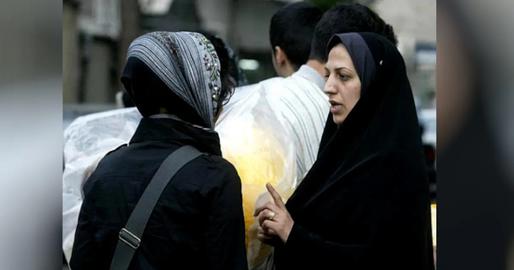

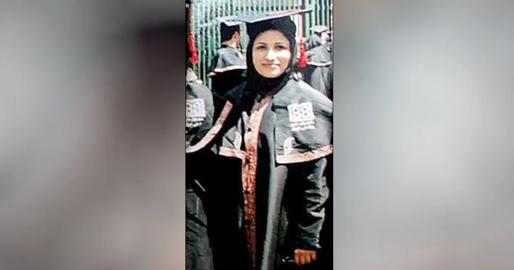


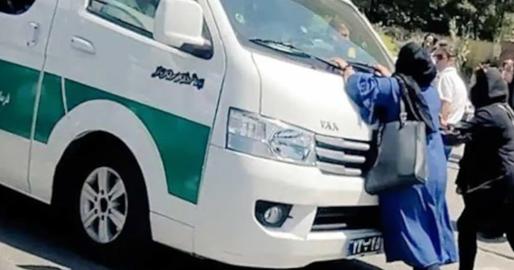
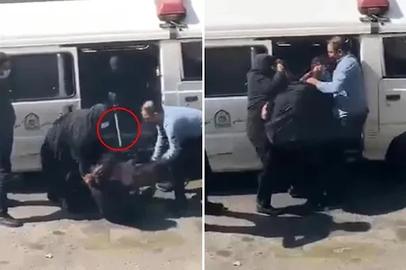





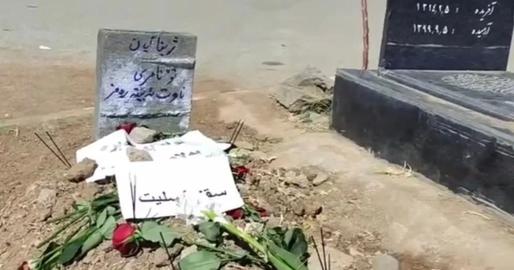
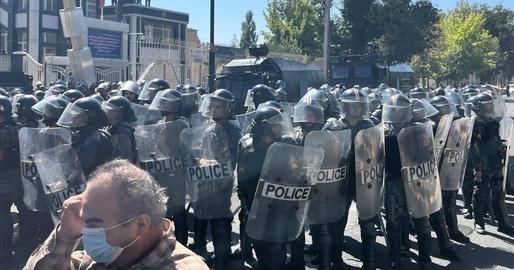
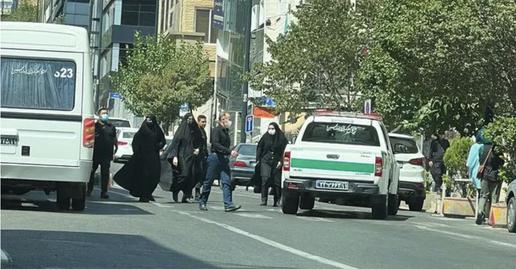
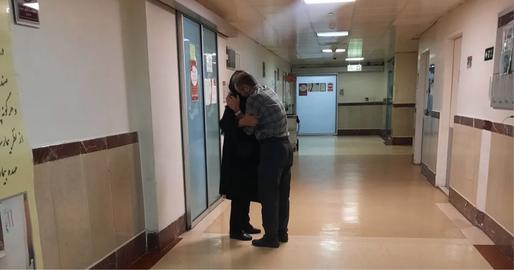









comments